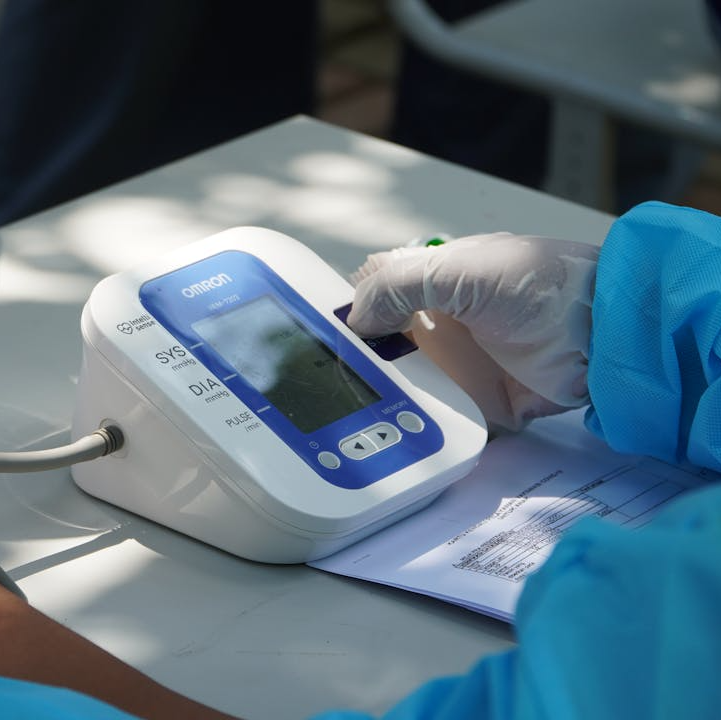Key Takeaways
- Original Medicare provides limited coverage for eye and dental care, focusing on medically necessary procedures.
- Medicare Advantage plans often offer additional vision and dental benefits, providing more comprehensive coverage options for beneficiaries.
Eye and Dental Care with Medicare: A Brief Guide for You
Maintaining good eye and dental health is essential for overall well-being, especially as we age. Understanding the coverage Medicare provides for these services is crucial for managing healthcare costs effectively. This guide will help you navigate the complexities of Medicare’s eye and dental care benefits and explore supplemental options to ensure comprehensive coverage.
Understanding Medicare’s Coverage for Eye Care
Medicare’s coverage for eye care is limited and primarily focuses on medically necessary procedures. It is essential to understand what is covered under Original Medicare (Part A and Part B) and how you can supplement this coverage to meet your needs.
Medicare Part A (Hospital Insurance)
Medicare Part A covers inpatient hospital care, which includes certain vision-related services when they are deemed medically necessary.
-
Eye Surgery: Medicare Part A covers eye surgeries that require hospitalization, such as surgeries to treat traumatic eye injuries or certain types of eye diseases. For example, if you need surgery for an eye condition that requires a hospital stay, Part A will cover the associated costs, including hospital room and board, anesthesia, and related services.
-
Emergency Care: If you experience a serious eye injury or emergency that necessitates hospitalization, Medicare Part A will cover the costs associated with your hospital stay. This includes situations where immediate medical intervention is required to save vision or treat severe trauma to the eyes.
Medicare Part B (Medical Insurance)
Medicare Part B covers outpatient medical services and supplies, including some vision-related services, primarily those that are medically necessary.
-
Cataract Surgery: One of the most significant vision-related benefits under Medicare Part B is coverage for cataract surgery. This includes the cost of the surgery itself and a standard intraocular lens (IOL). Additionally, Part B covers one pair of eyeglasses or one set of contact lenses after the surgery. This benefit is crucial for many seniors, as cataracts are a common age-related condition.
-
Glaucoma Screening: Medicare Part B covers an annual glaucoma screening for individuals at high risk for the disease. High-risk groups include people with diabetes, those with a family history of glaucoma, African Americans aged 50 and older, and Hispanic Americans aged 65 and older. Early detection through screening is essential for managing and treating glaucoma effectively.
-
Diabetic Retinopathy Screening: For beneficiaries with diabetes, Medicare Part B covers an annual eye exam to check for diabetic retinopathy. This condition is caused by damage to the blood vessels in the retina due to high blood sugar levels. Early detection and treatment are critical in preventing vision loss associated with diabetic retinopathy.
-
Macular Degeneration Treatment: Medicare Part B covers certain diagnostic tests and treatments for age-related macular degeneration (AMD). This includes injections and other therapies aimed at slowing the progression of the disease and preserving vision. AMD is a leading cause of vision loss among older adults, making this coverage particularly important.
Navigating Dental Care Benefits Under Medicare
Like vision care, Medicare’s coverage for dental services under Original Medicare is quite limited. However, understanding what is covered and exploring additional options can help you manage your dental health effectively.
Medicare Part A (Hospital Insurance)
Medicare Part A may cover certain dental services if they are received in a hospital setting and are integral to a covered procedure.
-
Emergency Dental Procedures: If you require emergency dental surgery due to an accident or trauma, Part A may cover the hospital stay and related costs.
-
Complicated Dental Procedures: If you need dental services as part of a covered medical procedure, such as jaw reconstruction following an injury, Part A may provide coverage for the hospital and anesthesia services.
Medicare Part B (Medical Insurance)
Medicare Part B generally does not cover routine dental care, such as cleanings, fillings, extractions, dentures, or other dental appliances. However, there are a few exceptions:
-
Oral Examinations: If you are undergoing a complex medical procedure that involves the mouth, such as heart valve replacement or organ transplant, Part B may cover an oral examination performed in a hospital before the surgery.
-
Dental Services Related to Radiation Treatment: Part B may cover dental services that are necessary for the preparation of radiation treatment involving the jaw.
Exploring Supplemental Options for Comprehensive Vision and Dental Coverage
Given the limitations of Original Medicare, many beneficiaries look for ways to supplement their coverage to include routine vision and dental care.
Medicare Advantage Plans (Part C)
Medicare Advantage plans, offered by private insurance companies, provide an alternative to Original Medicare. These plans are required to offer at least the same level of coverage as Original Medicare, but many also include additional benefits such as vision and dental care.
-
Vision Benefits: Many Medicare Advantage plans offer comprehensive vision care benefits that go beyond what Original Medicare covers. These benefits can include routine eye exams, corrective lenses, and sometimes even discounts on laser vision correction procedures such as LASIK.
-
Dental Benefits: Similarly, Medicare Advantage plans often provide dental benefits, covering routine dental exams, cleanings, X-rays, fillings, extractions, and more complex procedures such as crowns, bridges, dentures, and sometimes orthodontics.
When considering a Medicare Advantage plan, it is essential to compare the available options in your area to find a plan that meets your specific vision and dental care needs.
Standalone Vision and Dental Insurance Plans
Standalone insurance plans specifically designed for vision and dental care can provide comprehensive coverage for a range of services.
-
Vision Insurance Plans: These plans typically cover routine eye exams, glasses, contact lenses, and sometimes even discounts on corrective eye surgeries. Vision insurance can help manage out-of-pocket costs and ensure comprehensive eye care.
-
Dental Insurance Plans: These plans often include coverage for preventive care (routine check-ups, cleanings, and X-rays), basic procedures (fillings, extractions, root canals), and major procedures (crowns, bridges, dentures, and oral surgery). Dental insurance can help manage costs and provide access to necessary dental services.
Dental Discount Plans
Dental discount plans are not insurance but provide discounts on dental services at participating providers. For a monthly or annual fee, members receive reduced rates for dental procedures. These plans can be a cost-effective option for those who need regular dental care but do not want to pay for full insurance coverage.
Employer or Retiree Plans
Some retirees may still have access to vision and dental benefits through their former employers or unions. It is worth checking if these benefits are available and what they cover, as they can provide significant additional coverage at little or no cost.
Conclusion
Medicare’s coverage for eye and dental care under Original Medicare (Part A and Part B) is limited and primarily focuses on medically necessary procedures and treatments. Routine vision and dental care, such as eye exams, glasses, cleanings, and fillings, are generally not covered. However, Medicare Advantage plans (Part C) often provide additional benefits, offering more comprehensive coverage for routine care and eyewear.
Understanding the specifics of Medicare’s vision and dental coverage is essential for effectively managing your healthcare needs. By exploring all available options, including standalone vision and dental insurance, dental discount plans, and employer or retiree benefits, you can ensure comprehensive coverage for your eye and dental health. This proactive approach helps maintain your overall well-being and allows you to take full advantage of the benefits available to you under Medicare.
Contact Information:
Email: [email protected]
Phone: 5625554567









